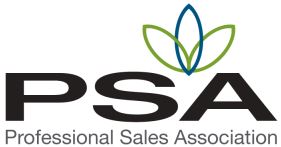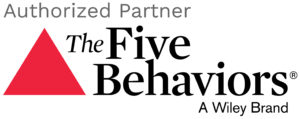Last week’s post, Whose Eggs are They? (https://mnsales.com/eggs/), generated a common perspective of the interaction between a prospect and salesperson. Below is the comment with my reply. If you’d like to comment, I welcome your perspective.
“I would recommend just a bit of twist on this analogy to really make it stick. I think the comment of “we have to help our customers find their eggs” is just a slight bit off. I think the customer knows where their eggs are most of the time, we as professional sales people have to help them feel comfortable in revealing their eggs (problems) to us! It is human nature to hide or mask any weakness or mistakes. We know where they are most of the time. We don’t need help finding them, we need help in admitting to the problem and in guiding our customers to a better way. I also would not start with the consequences for not buying from me. I would start with connecting with the customer so they know and understand that I am competent and that I have character. Once this is established, they will trust me and as we all know, you have nothing without trust. My two cents!” – Rob
Thanks Rob for your comment and sharing your perspective. With your two cents, I see two areas I’d like to touch on. And thank you again for submitting your comment. I’m grateful and welcome your response.
First, your comment, “…customers know where their eggs (problems) are most of the time…” As a professional salesperson, often the ‘problem’ the prospect brings you is not the real problem. In most cases it is one of many symptoms. If the prospect knows the problem and brings it to you and you have a solution, do you close the sale 100% of the time? Probably not.
You know more about your products and what problems they solve and don’t solve than any prospect. By asking the right questions, you demonstrate extensive product knowledge (and competencies, as you mentioned) and help the prospect uncover and discover the impact (consequences) of doing nothing, which is your biggest competition, or not buying from you at all. This impact, translated into a cost – how much is it going to cost if you don’t fix it now – will be compared to your price. This creates urgency to buy now and value in the purchase (cost minus price equals value).
“People are usually more convinced by reasons they discover themselves than by those found by others.” –Philosopher Blaise Pascal
Don’t assume the prospect knows what they are talking about. And if you don’t know what they are talking about, you don’t know what you are talking about. If you misdiagnose the problem, because you didn’t ask more questions, the prospect will think you sold them something that didn’t fix the problem. Whose fault is that? The salesperson has to take control and responsibility for the conversation, like a doctor during an annual physical. That is the best way to truly help the patient, I mean prospect.
Second, you said, “I also would not start with the consequences for not buying from me. I would start with connecting with the customer so they know and understand that I am competent and that I have character. Once this is established, they will trust me and as we all know, you have nothing without trust.”
Trust and rapport is important. The longer the sales cycle; The greater the investment, the greater the value for building trust and rapport.
In filling the sales pipeline and prospecting by phone, we have a very small window to start a conversation, before the prospect shuts us down and closes the window on our fingers. If we don’t have that piqué statement to grab their attention and interest, it is seconds before the light changes to red.
Trust is necessary when the prospect is risking something. We need to hook them with an intriguing thought that generates curiosity. Then the more curiosity they have; the more vulnerable they are, the more trust is needed and required to receive honest answers, as you mentioned in your comment. Without trust and rapport, you will not receive honest answers, rather ones that put the prospect in the best light.
Thanks again Rob for submitting your comment.







